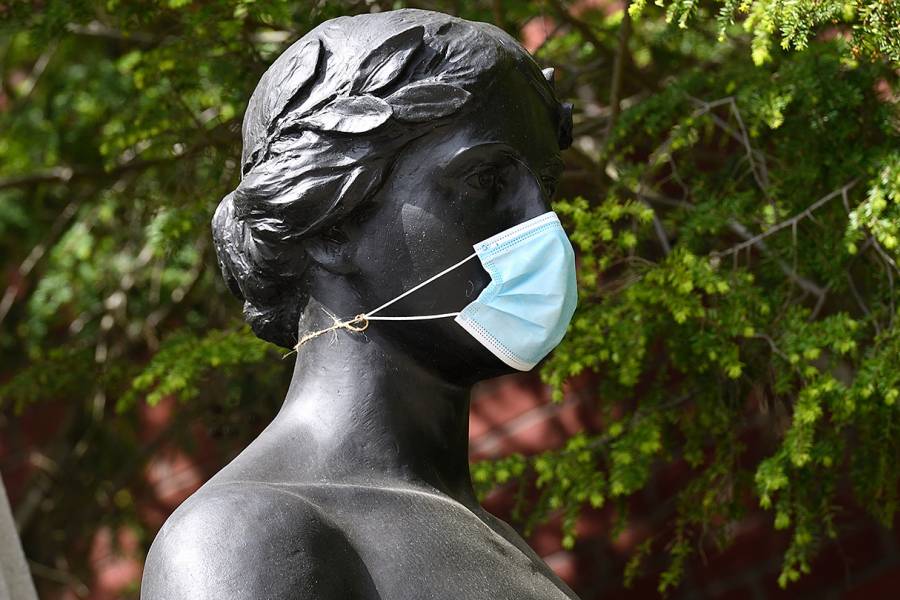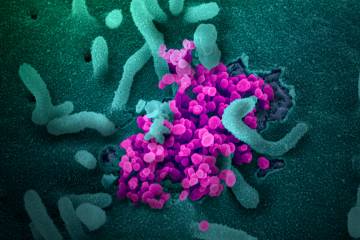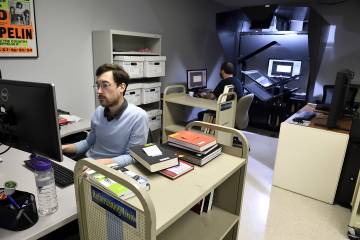When the 1918 influenza pandemic struck Baltimore, its impacts were so sudden and severe that few thought to record what life was like in the midst of a global health crisis. As COVID-19 continues to transform our day-to-day lives, Johns Hopkins archivists are eager to avoid the mistakes of the past.
This summer the university and hospital have launched archival projects to preserve the pandemic experiences of the Hopkins community as learning tools for future generations.
"The 1918 epidemic lasted only about three and a half months and was terribly intense, so people weren't exactly thinking of documentation," said Nancy McCall, director of the Alan Mason Chesney Medical Archives of the Johns Hopkins Medical Institutions. "Fortunately, the hospital has always kept records of admissions and discharges and morbidity, but we have very little in terms of what people experienced."
McCall is heading one of three Hopkins archival projects. In addition to the Medical Archives, Homewood's Sheridan Libraries and Peabody's Arthur Friedheim Music Library have begun their own record-keeping as well, with each project focusing on a different dynamic of the 2020 pandemic experience.
In upcoming weeks, the Medical Archives will launch a digital initiative asking employees and students to share their individual COVID-19 stories for a new coronavirus archival project.
Home to the collections of institutional records and personal items of the schools of Medicine, Nursing, and Public Health, the Medical Archives will store these recollections alongside COVID-19 research produced by Johns Hopkins, as well as hospital records and clinical data.
Image caption: The Friedheim Archive hosts "Flattening the Curve," a site-specific dance exploration at Audra State Park in Barbour County, West Virginia.
Capturing the Homewood experience of COVID-19 is Johns Hopkins archivist Jordon Steele. In June, Steele launched a project inviting university students, staff, and faculty to share their COVID-19 stories through a questionnaire. Participants are invited to share ways the virus has impacted their daily lives, how technology has affected their work and social experiences, and how they think their lives will change moving forward.
In addition, participants are invited to donate personal materials such as journals written during the pandemic, recordings of Zoom hangouts, photographs, social media posts, and any other first-person materials.
According to Steele, these donations will help round out what would otherwise be an administrative or top-down look at how COVID-19 has impacted the Hopkins experience.
"The archives exist to document university history," Steele said. "And we take an expansive, inclusive view of that. We're always thinking critically about ways we can widen the scope to reflect the broad experience of the university community."
After the university moved to online classes for the spring semester, Peabody's Friedheim Music Library began its ArtReach program in an attempt to bring music to a world that had found itself suddenly shut off from communal performances.
Through the program, Peabody students, staff, faculty, and alumni recorded and shared live-streamed and pre-recorded performances that can be accessed by music lovers worldwide. Considering the archival value of these performances, Kathleen DeLaurenti, head librarian at the Arthur Friedheim Library, began curating an archive of both ArtReach and other Peabody-affiliated musical recordings.
"I think it gives a unique viewpoint into how musicians handled this moment," DeLaurenti said. "It's exciting to see how our students took advantage of making things without a lot of resources and doubled down on the value of what they were doing."
Recordings include intimate individual performances as well as elaborate remote collaborations. DeLaurenti said it's inspiring and moving to see students who had never met using this unique moment as a springboard to perform together.
Up until the 1990s, the Friedheim Library's archives consisted solely of written music or audio recordings of Peabody performances. According to DeLaurenti, the ability to preserve video has allowed the archives to more fully embody its mission. By seeing musicians confined to their homes as they play, she said, it hammers home the reality of the current historical moment.
"We've always been interested in seeing not just how the music was performed but the culture and context around it," DeLaurenti said. "I think the capacity to have that visually is so much more powerful than the recordings we have of the '20s or '30s."
Considered together, these archivists say they hope that future generations will be able to look back on a well-rounded view of how we adjusted to and survived the current moment.
"We want to be sure that in 2120 people looking back see that the university positioned itself to document this moment," Steele said. "What is the lived experience of our students? How did our lives change on an individual basis? That's vital information for people to analyze this experience in a wider perspective."
Posted in University News, Politics+Society
Tagged archives, peabody archives, coronavirus, covid-19










